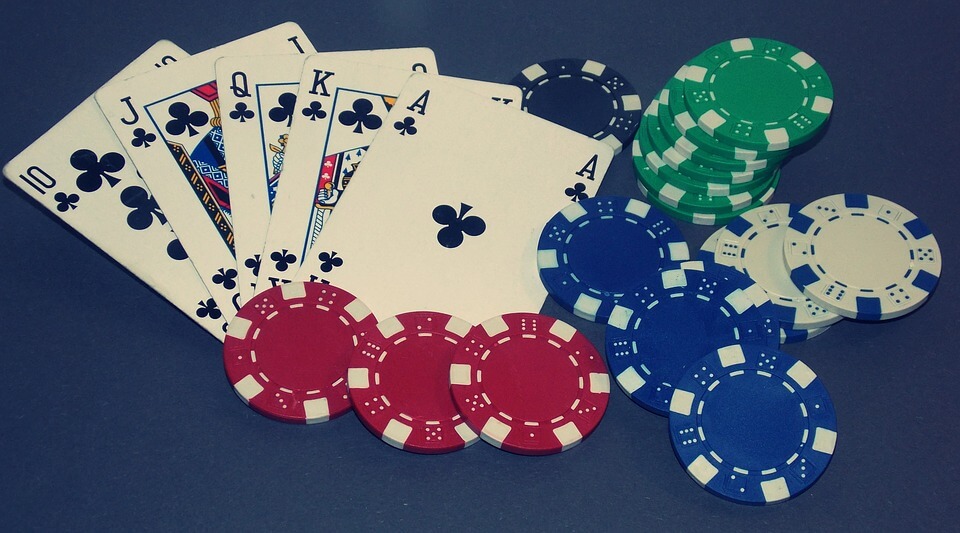Kaarten Delen Texas Holdem
- Pokeren Kaarten Delen bonuses are cash rewards you receive when you put money into a a USA online casino. Normally this is a percentage of the amount you deposit and could be 100% or Pokeren Kaarten Delen more. Thus if you deposit €/£/$500 and are given a 100% deposit bonus, you will actually receive €/£/$1,000 in your account.
- Poker regels met 4 kaarten, poker regels flush split pot posted an update 3 weeks, 2 days ago.
At PokerStars, we deal many varieties of poker, some of which use different hand rankings. Hold’em, Omaha, Seven Card Stud and Five Card Draw all use the traditional ‘high’ poker rankings. Omaha Hi/Lo, Razz and Stud Hi/Lo use the ‘Ace to Five’ (‘California’) low hand rankings for low hands. 2-7 Single Draw and 2-7 Triple Draw use the ‘Deuce to Seven’ (‘Kansas City’) lowball rankings for low hands.
Lastly, Badugi uses a special ranking of hands unique to that game.
Voor het delen van de kaarten worden de kaarten goed geschud door de Dealer en na het schudden biedt hij de stock kaarten aan de speler aan links naast hem. Deze pakt een deel van de stock en legt deze op de Cut Card. De helft van de stock kaarten die de speler heeft laten liggen worden boven op gelegd en de stock is in orde om gedeeld te worden.
Straight Flush: Five cards in numerical order, all of identical suits.
In the event of a tie: Highest rank at the top of the sequence wins.
The best possible straight flush is known as a royal flush, which consists of the ace, king, queen, jack and ten of a suit. A royal flush is an unbeatable hand.
Four of a Kind:Four cards of the same rank, and one side card or ‘kicker’.
In the event of a tie: Highest four of a kind wins. In community card games where players have the same four of a kind, the highest fifth side card ('kicker') wins.
Full House:Three cards of the same rank, and two cards of a different, matching rank.
In the event of a tie: Highest three matching cards wins the pot. In community card games where players have the same three matching cards, the highest value of the two matching cards wins.
Flush: Five cards of the same suit.
In the event of a tie: The player holding the highest ranked card wins. If necessary, the second-highest, third-highest, fourth-highest, and fifth-highest cards can be used to break the tie. If all five cards are the same ranks, the pot is split. The suit itself is never used to break a tie in poker.
Straight: Five cards in sequence.
Kaarten Delen Texas Holdem Card Game
In the event of a tie: Highest ranking card at the top of the sequence wins.
Note: The Ace may be used at the top or bottom of the sequence, and is the only card which can act in this manner. A,K,Q,J,T is the highest (Ace high) straight; 5,4,3,2,A is the lowest (Five high) straight.
Three of a kind:Three cards of the same rank, and two unrelated side cards.
In the event of a tie: Highest ranking three of a kind wins. In community card games where players have the same three of a kind, the highest side card, and if necessary, the second-highest side card wins.
Two pair:Two cards of a matching rank, another two cards of a different matching rank, and one side card.
In the event of a tie: Highest pair wins. If players have the same highest pair, highest second pair wins. If both players have two identical pairs, highest side card wins.
One pair:Two cards of a matching rank, and three unrelated side cards.
In the event of a tie: Highest pair wins. If players have the same pair, the highest side card wins, and if necessary, the second-highest and third-highest side card can be used to break the tie.
High card: Any hand that does not qualify under a category listed above.
In the event of a tie: Highest card wins, and if necessary, the second-highest, third-highest, fourth-highest and smallest card can be used to break the tie.
This method of ranking low hands is used in traditional Hi/Lo games, like Omaha Hi/Lo and Stud Hi/Lo, as well as in Razz, the ‘low only’ Stud game.
Note that suits are irrelevant for Ace to Five low. A flush or straight does not ‘break’ an Ace to Five low poker hand. Aces are always a ‘low’ card when considering a low hand.
Please also note that the value of a five-card low hand starts with the top card, and goes down from there.
Five Low, or Wheel: The Five, Four, Three, Deuce and Ace.
In the event of a tie: All Five-high hands split the pot.
Six Low: Any five unpaired cards with the highest card being a Six.
In the event of a tie: The lower second-highest ranking card wins the pot. Thus 6,4,3,2,A defeats 6,5,4,2,A. If necessary, the third-highest, fourth-highest and fifth-highest cards in the hand can be used to break the tie.
Seven Low: Any five unpaired cards with the highest card being a Seven.
In the event of a tie: The lower second-highest ranking card wins the pot. If necessary, the third-highest, fourth-highest and fifth-highest cards in the hand can be used to break the tie.
Eight Low: Any five unpaired cards with the highest card being an Eight.

In the event of a tie: The lower second-highest ranking card wins the pot. If necessary, the third-highest, fourth-highest and fifth-highest cards in the hand can be used to break the tie.

An Eight Low is the weakest hand that qualifies for low in Omaha Hi/Lo and Stud Hi/Lo. However in Razz, there is no such ‘qualifier’ and the lowest hand will always win the pot, even if it is a nine low, queen low, or even a pair!
The Deuce to Seven Lowball hand rankings are the exact opposite of the traditional ‘high’ hand rankings. Therefore, the worst possible hand in traditional high poker – seven-five high, with different suits, becomes the best possible hand in deuce to seven lowball (a ‘perfect seven’ low or ‘wheel’).
In practice, an ace always plays as a high card in Deuce to Seven (so A,5,4,3,2 is an ace high, not a straight). Straights and flushes count against your hand in Deuce to Seven.
Seven Low:Any five unpaired, unconnected cards of different suits, with the highest card being a seven. The best possible hand is 7,5,4,3,2, also known as a ‘wheel’ or ‘number one’.
In the event of a tie: The lower second card wins the pot. Thus 7,5,4,3,2 beats 7,6,5,3,2 (a ‘Seven-Five low’ is better than a ‘Seven-Six low’). If necessary, the third-highest, fourth-highest and fifth-highest cards in the hand can be used to break the tie.
Eight Low:Any five unpaired, unconnected cards of different suits, with the highest card being an eight.
Kaarten Delen Texas Holdem Tournaments
In the event of a tie: The lower second card wins the pot. If necessary, the third-highest, fourth-highest and fifth-highest cards in the hand can be used to break the tie.
Nine Low:Any five unpaired, unconnected cards of different suits, with the highest card being a nine.
In the event of a tie: The lower second card wins the pot. If necessary, the third-highest, fourth-highest and fifth-highest cards in the hand can be used to break the tie.
Ten Low:Any five unpaired, unconnected cards of different suits, with the highest card being a ten.
In the event of a tie: The lower second card wins the pot. If necessary, the third-highest, fourth-highest and fifth-highest cards in the hand can be used to break the tie.
Note: There is no ‘qualifier’ for low in Deuce to Seven lowball games. The above are just examples of hands that may come up in play – the lowest hand will always win the pot in Deuce to Seven, even if it is a pair or worse!
Badugi does not use traditional poker hand rankings and it takes some practice to learn how to correctly read the hands. Badugi hand rankings are somewhat related to the Ace to Five rankings; like in Ace to Five, an ace always plays as a low card. However, unlike Ace to Five, each card in your hand must be a different suit and a different rank, in order to count.
Badugi hands consist of four cards, instead of the usual five. Because of this it is impossible to make a five-card straight, and having four cards in sequence does not hurt your hand.
Remember, if you have cards of the same suit, only one of them counts, and if you have pairs, only one of them counts.
Badugi: A badugi is any hand which consists of four unpaired cards, each a different suit.
In the event of a tie: The lower second card wins the pot. If necessary, the third-highest and fourth-highest cards in the hand can be used to break the tie.
Three-Card Hand: Any hand consisting of three unpaired cards of different suits, but a fourth paired or suited card. The lowest three unpaired cards of different suits play.
Because there is a pair, one of the fours does not count, so it is simply ignored, making a 4,2,A three-card hand
Because there are two hearts in this hand, one of them is ignored, making a 3,2,A three-card hand.
In the event of a tie: The lower second card wins the pot. If necessary, the third-highest card in the hand can be used to break the tie. The fourth (paired or suited) card does not count toward the hand and is not used to break ties.
Two-Card Hand: Any hand consisting of two unpaired cards of different suits, but two paired or suited cards. The lowest two unpaired cards of different suits play.
Because there are two pairs, one of each pair is discarded, making a 5,A two-card hand.
Because there are three hearts, two of them are discarded, making a 2,A two-card hand.
In the event of a tie: The lower second card wins the pot. The third and fourth (paired or suited) cards do not count toward the hand and are not used to break ties.
One-Card Hand: A hand consisting of only one playable card. The lowest card plays.

Since there are four Aces, three of them are discarded, making a one-card hand of just an Ace.
Since there are four cards of the same suit, three of them are discarded, making a one-card hand of just a Three.
In the event of a tie: The pot is split between two equal one-card hands.
The poker dictionary is your reference for poker jargon and the language of poker.
Make your first real money deposit and start playing at PokerStars. Deposits are fast and secure.